Salesforce CRM is the leader in on-demand CRM (customer relationship management) solutions. Both large and small businesses trust their customer information to this platform, primarily because of its safe & secure sales application. With Salesforce, businesses get access to the biggest app market for the CRM SaaS industry, helping them customize their experience in a meaningful way.
Salesforce CRM is a complete package that provides businesses with a SaaS product that is easy to use and requires no software for installation. The flexible, highly customizable, and mobile CRM tracks sales activities in real-time and focuses on closing deals. However, it isn’t the best application for all industries.
Here are a few of the Salesforce weaknesses:
Expensive for Small Business
No doubt, Salesforce CRM is designed to function for businesses of all sizes, but its full version costs $125 per month/user on average, which makes it an expensive SaaS application for small businesses or startups. The basic package comes at almost half the price, but it lacks many features that would be useful for enterprises. For a client on a tight budget, this may prove to be an expensive investment.
No Support for Public Cloud
Salesforce does not support the public cloud. This means there are limited hosting options. So customers interested to customize and extend their CRM created with a single vendor tool and operating on one cloud may not be able to transfer their investment in the event they decide to leave Salesforce. As a result, they will be unlikely to protect their investment.
Weak Marketing Automation Capability
Salesforce does not boast the best lead management/marketing automation capabilities. In order for businesses to track leads, digital prospects, or nurture campaigns, a separate product acquisition is required, since the Salesforce marketing cloud is limited to social marketing and does not fully satisfy marketing automation and lead management requirements.
No Sophisticated Business Intelligence
Salesforce is not the best CRM for businesses seeking online analytical processing, data mining & warehousing. Such Salesforce customers would need to invest in third-party BI solutions.
Not apt for specific services
Salesforce is a better solution for product companies and isn’t the best solution for businesses that sell services. It does not offer capabilities for volume pricing, discount management, inventory visibility, order commitment, shipment tracking, backorders, issue & returns management, and upsell/cross-sell automation.
For customers looking for broader software suites, Salesforce becomes less competitive. It delivers relatively shallow integrations with third-party applications.
For companies focusing on call center solutions, Salesforce is not the best software to invest in, with fewer international data centers. The lack of data centers can impact user performance. Not only this, it could pose regulatory and compliance concerns with regard to data privacy.
B2B Dominance
Salesforce is set up on a business-to-business model and is not well oriented to the B2C industry. As a result, its customer base is predominantly B2B. It provides a Service Level Agreement for its cloud service only upon customer request. Unfortunately, the Salesforce SLAs are inconsistent and vary from one customer to another. Small and midsize businesses also require service-level agreements.
Multi-Tenant Architecture
As a cloud service, Salesforce uses the shared architecture, which is more of a cost savings benefit to the CRM provider itself. Unfortunately, multi-tenant architecture provides reduced flexibility, autonomy, and customization capabilities. Providing the same solution to millions of customers worldwide amounts to compromising speed and flexibility, even though the SaaS solution provides several customization tools.
Functionality
The CRM solutions provider uses a tools approach to compensate for the missing functionality. However, Salesforce charges extra for the additional AppExchange products and customization tools for other SaaS CRM applications. As a user, you need to pay extra for each application that is not part of the package and requires purchase, implementation, and evaluation.
The lack of an automated upgrade mechanism for AppExchange means users’ account is not automatically updated. Users must de-install and reinstall the latest versions of the gadgets.
Moreover, Salesforce lacks webstore functionality, which means it isn’t the right choice for companies that run eCommerce stores.
All in all, Salesforce is a pioneer in the CRM industry, with an array of features. If you are wondering whether Salesforce CRM is the right choice for your organization, let the ITQlick experts guide you. We have decades of experience in the IT industry and can guide you through the CRM selection process.
